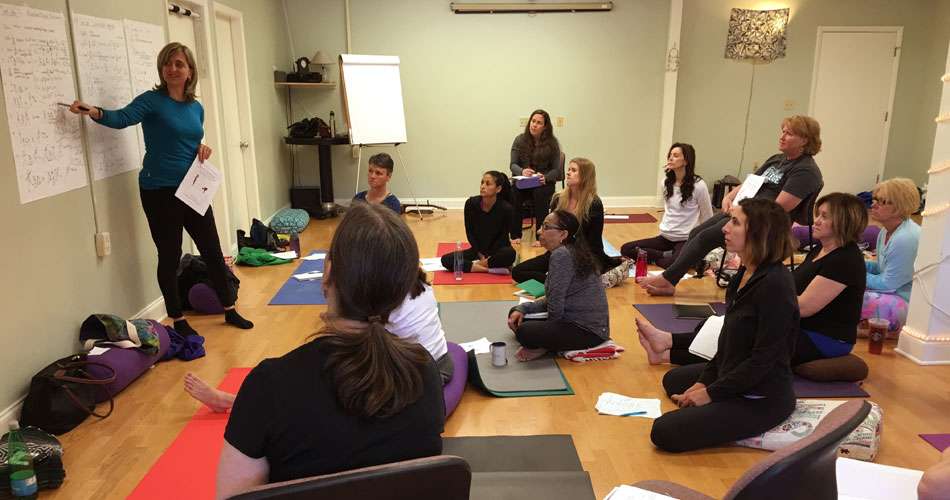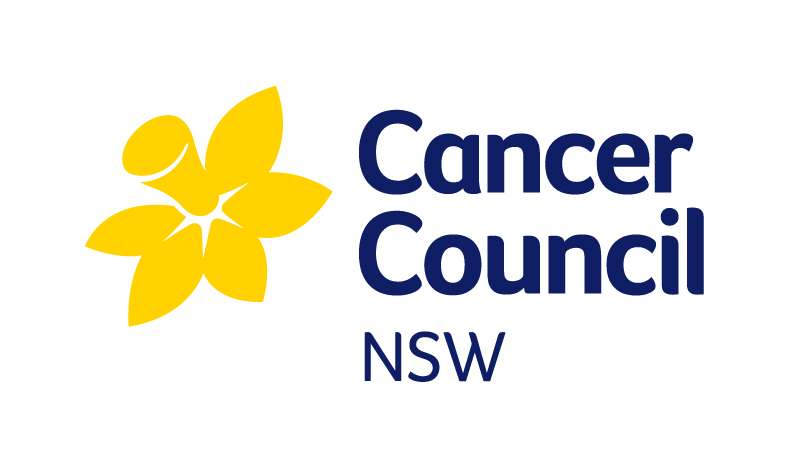Design and teach therapeutic yoga for groups and individuals with specific needs or health challenges.
The Professional Yoga Therapist Program is a modular training program. As a complete professional program, students are prepared to design and teach therapeutic Yoga for groups and individuals with specific needs or health challenges.
Program Schedule:
The 13 Residential “Synchronous” Online Modules are 35 hours each and will meet every other month, Friday- Tuesday, from 9am-5pm. (All Modules are currently offered virtually.) Residential Practicum Delivery and Mentorship will be scheduled individually through The Mindfulness Center. Distance or “asynchronous” hours are done on your own time.
PROGRAM COURSES & MODULES
CORE MODULE, 207 Hours
Course #100: Online Introductory Module (2 hrs, asynchronous) This SOMA PYTT Introductory Module provides an introduction to this training and overview of the field of yoga therapy. The goal of this course is to introduce the student to the course requirements, philosophies and perspectives taught in this program, and to begin speaking the language of yoga therapy and scientific methodology. The course provides an overview of the range of tools and practices available to the yoga therapist, including asana, bandhas, mudra, and pranayama. Yoga Therapy is an inherently integrative practice, simultaneously affecting the body, mind, cognition, emotions, and the breath. This course lays the foundation for learning self-awareness and self-empowerment skills and tools, and the role of awareness and empowerment through yoga in the therapeutic process. Students will learn different viewpoints of physical, mental, emotional, and spiritual tools of yoga therapy. The scientific method is considered as a process for self-exploration and discovery. Additional research skills will be introduced.
Course # 101- Professional Practices in the Field of Yoga Therapy (32.5 hrs): Students in Professional Practices in the Field of Yoga Therapy will gain knowledge of the professional considerations relevant to the field of yoga therapy including ethical principles, legal regulatory and business issues, collaboration and networking, personal and professional development and continuing education.
Course # 102– Evolution of Yogic Philosophies (35 hrs): Students in “Foundations of Yogic Philosophies” will gain knowledge of the evolution of the teachings and philosophy of the yoga tradition and its relevance and application to yoga therapy. Students will learn how yogic philosophy defines the practices of yoga therapy. Students will explore philosophy from the Vedic and post-vedic periods, Samkhya, Yoga, Tantra and Ayurveda.
Course # 103- Applied Yoga Anatomy: The Biomechanics of Yoga (35 hrs): Students in Applied Yoga Anatomy: The Biomechanics of Yoga will gain knowledge of biomechanics and movement as they relate to the practice of yoga and the work of a yoga therapist. Exploring physical asana and concepts of motion, students will learn to assess structural alignment and imbalances and to modify yoga asana protocols and classes for individual needs, physical limitations, and diverse populations.
Course # 104- Yoga Therapy Principles and Skills (35 hrs): Students in this course on Yoga Therapy Principles and Skills will gain in-depth knowledge of, and demonstrated ability to implement effective teaching methods, adapt to unique styles of learning, provide supportive and effective feedback, acknowledge the client’s/student’s progress, to cope with unique difficulties/successes and to develop and adjust appropriate practice strategies to the client/student. Students will also gain in-depth knowledge of and demonstrated ability to transmit the value of self-awareness and self-responsibility throughout the therapeutic process.
Course # 105- Yoga Therapy Tools- Working with Individuals (35 hrs): Students in Yoga Therapy Tools– Working with Individuals will gain in-depth knowledge of the principles and practical applications of Patanjali’s Yoga Sutras as they relate to the practice of yoga therapy. Students will learn the yamas and niyamas in the context of yoga therapy, exploring the role of Ahimsa, Satya, Asteya, Brahmacharya, and Aparigraha as well as Shaucha, Santosha, Tapas, Svadhyaya, and Ishvara Pranidhana in yoga therapy. Students will gain experience in cultivating a lifestyle that embodies the key concepts of the sutras through practice, specifically exploring the range of yoga practices and yoga therapy tools. Students will gain in-depth knowledge of yoga therapy tools including asana, pranayama, yoga nidra and related meditation and relaxation techniques such as bhavana, mantra and ritualized activities such as nyasa and mudra and their potential therapeutic effects for common conditions. Students in this course will explore the personal path that underlies the spiritual transition of moving from ego-identification to soul-identification. Students in this course will also learn about concepts of sanctuary and vastu shastra. Students will be introduced to basic yogic/ayurvedic dietary principles that support the spiritual transition.
Course # 106- Yoga Therapy Tools- Working with Groups (32.5 hrs):Students in Yoga Therapy Tools- Working with Groups will gain in-depth knowledge of the practical applications of Patanjali’s Yoga Sutras as they apply to working in a group setting. Students will explore the yamas and niyamas in the context of yoga therapy, and gain experience in helping others to cultivate a lifestyle that embodies the key concepts of the sutras through practice, specifically exploring the sutras related to asana, pranayama, yoga nidra and related meditation and relaxation techniques. Students in this course will develop basic knowledge of and demonstrated ability to design implement and evaluate group programs. Students will gain familiarity with group dynamics and techniques, including communication skills, time management, and the establishment of priorities and boundaries as well as techniques to address the specific needs of individual participants, to the degree possible in a group setting.
CERTIFICATE MODULE: Yoga Science and Research, 70 Hours
Course # 107- Research Methodology in Yoga and Mind-Body Medicine (35 hrs): Students in Research Methodology in Yoga and Mind-Body Medicine will gain knowledge of research methods and experimental design in yoga research. Students will gain knowledge of how to reference current healthcare information; and with that information how to evaluate and apply yoga research to determine clinical outcomes, mechanisms of action, and active ingredients of yoga therapy. Students will also gain knowledge of the history of yoga therapy research, its origin, limitations, growth, and future directions. Current yoga therapy research will be considered in the context of the broader scope of ongoing medical research and applications in evolving standards of health care. Students will gain specific knowledge of medical terminology, pathologies, disorders, drugs, and surgical procedures relevant to the work of yoga therapy.
Course #108- Bridging the Ancient Practice & Modern Science of Healing (35 hrs): Students in Bridging the Ancient Practice and Modern Science of Healing will gain knowledge of the basic perspectives on health and disease from yoga and Ayurveda. Students will learn to translate these ancient perspectives into the language of modern medicine, requiring knowledge of human anatomy and physiology, as well as major systems of the body and their interrelationships, as relevant to the field of yoga therapy.
CERTIFICATE MODULE: Yoga for Mental Health, 135 Hours
Course #109 – Yoga and the Mind (35 hrs): Students in Yoga and the Mind will gain knowledge of yoga perspectives on the structure, states, functioning and conditions of the mind. These conditions of the mind and their expressions will be studied as expressed in such texts as the Yoga Sutra, the Bhagavad Gita and other texts.
Course # 110- Yoga Therapy for Mental Health Applications (32.5 hrs): Research shows that yoga therapy is helpful for many mental health conditions. Students in Yoga Therapy for Clinical Mental Health Applications will gain knowledge of the role of yoga therapy in the treatment of many commonly occurring mental health conditions – from psychological distress to psychiatric conditions. Clinical studies as well as individual case studies are presented. Students learn therapeutic yoga and related mindfulness skills for working with clients with a range of mental health conditions, ranging from trauma/PTSD, depression, anxiety, addiction, insomnia and more. Students learn to work therapeutically with individuals and groups. The course also covers ethical considerations for yoga therapists working with clients with mental health conditions, and integrating or interfacing care with psychotherapy and psychiatry.
Course # 111- Neurobehavioral Yoga Therapy (35 hrs): Students in Neurobehavioral Yoga Therapy will gain knowledge of models of human development, including developmental stages, lifecycles, and personality, and their importance to medical and psychological health and well-being. Students will also learn about the influence of familial, social, cultural, and religious conditioning on mental and medical perspectives of health and healing. Students will learn about the interrelationships of the systems of the body, how they interact with the breath, mind, and emotions and as mechanisms of transformation through yoga therapy.
Course # 112- Principles of the Therapeutic Relationship (32.5 hrs): Students in this course on Principles of the Therapeutic Relationship will gain in-depth knowledge of, and observed capacity for well-developed communication skills: listening, presence, directive and non-directive dialogue. Students will learn to demonstrate the ability to recognize, adjust, and adapt to specific client/student needs in the evolving therapeutic/professional relationship. Students will also learn to demonstrate ability to recognize and manage the subtle dynamics inherent in the therapist/client relationship. More generally, students will gain in-depth knowledge of the scope of practice of yoga therapy and how to assess the need for referral to other professional services.
CERTIFICATE MODULE: Ayurveda, 35 Hours
Course #113– The Science of Ayurveda: A Translation between Two Cultures (35 hrs): Students in The Science of Ayurveda: A Translation between Two Cultures will gain knowledge of Ayurveda, the sister science that informs yoga therapy. Students will learn Ayurvedic principles for categorizing illness as well as of common pathologies and disorders of all the major systems, including symptoms, management, illness trajectories, and contraindications, as relevant to the work of a yoga therapist.
CERTIFICATE MODULE: Mindfulness Meditation Practices in Yoga Therapy, 130 Hours
Course #114– Mindfulness Meditation Practices in Yoga Therapy- Online (130 hrs, asynchronous)
Students in the Mindfulness Meditation Practices in Yoga Therapy- Online will deeply explore the science, art and practice of meditation for therapeutic applications. The online platform hosts an interactive community of fellow trainees, a rich multimedia library, access to both live and recorded content and faculty feedback and assessment. Participants will gain experience in languaging guided meditation as well as how to facilitate their students’ ability to employ mindfulness for self-care. Content will address the evidence basis for the clinical and therapeutic applications of meditation for a variety of populations including group and individual settings.
PRACTICUM & Distance Learning– 225 Hours
Practicum & Mentorship, 55 hrs Residential (supervised),
Practicum Delivery, 130 hrs Distance (independent): The Mindfulness Center offers an opportunity for our yoga therapists in training to provide clinical services in a supervised clinical environment through The Mindfulness Center. As a not-for-profit charitable, educational and research organization, The Mindfulness Center provides wellness services to our community. Supervised clinical practice experience provides students with the opportunity to lead yoga therapy sessions for both group and one-on-one client sessions; while also affording our community in need with yoga therapy services and classes. Students are required to contribute a minimum of 150 clinical hours to the community.
Practicum delivery involves the following steps and procedures:
• Delivery of supervised yoga therapy treatment protocol for individual clients. Treatment protocols are discussed and designed in advance, however, impromptu changes in the protocol may be appropriate or necessary in some circumstances, as no two individual clients are identical in their needs. With experience, students are encouraged to revise or update their treatment plan as appropriate, and to discuss any updates with their supervisor. Students must also document these developments in their client records and case histories.
• Client follow up- students will design follow-up protocols based on client needs.
• Delivery of group yoga therapy sessions.
Practicum Documentation & Independent Study, 40 hrs



